by current UNC MPA student Hallie Springer
Hi! I am Hallie Springer, an almost-second year in the UNC MPA program. I was born and raised in Winston-Salem, and I completed my undergraduate degree here at UNC-Chapel Hill in 2022. In undergrad, I studied economics and public policy. After graduating, I spent one year in DC working for a teacher’s union. Although I loved the work, the city wasn’t for me, and I am very glad to be back in my home state of NC! That experience, along with my public policy work in undergrad, helped me realize I wanted to get my MPA. I found that while I enjoyed working for a national organization, I wanted to be closer to the people who I was working for. The MPA degree’s focus on local organizations (local government, community nonprofits, etc) would give me the education and experience I needed. A key part of this experience that I sought is the Professional Work Experience (PWE). This summer, I have been working with ncIMPACT for my PWE. ncIMPACT is an entrepreneurial initiative with the UNC School of Government. This organization, which focuses on collective action and bridging policy with practice across the state of North Carolina, could not have been a more perfect fit for my PWE. The first project I was able to work on was the Statewide Summit for Suicide Prevention. This event was the culmination of 18 months of hard work by the ncIMPACT team as well as 15 community-led teams all working in the mental health and suicide prevention space. Personally, I had no background in the mental health field, but I had experience in research and event coordination.
From this experience, I was able to meet people all over the state working on suicide prevention and awareness. I heard presentations from DHHS Secretary Kody Kinsley, CDC Advisor Charlene Wong, and other state leaders. Additionally, I was able to present on the work that the ncIMPACT team had done prior in the year, with the 2024 POV Challenge. One of the best experiences, though, was the “We See You” art installation, created by my fellow student researchers and I. The concept for the art project was to take polaroids of summit attendees and display them all on a board that says “We See You.” This piece was meant to show people at the event who were struggling with their mental health that they were not alone and that people and resources were available to them. Attendees were able to take pictures with the art piece, find their pictures in it, and walk away knowing that the over 400 people at this summit were as dedicated to suicide prevention and supporting mental health as they were. It was a visualization of the sense of community found at this event. I have, and will continue doing interesting and impactful things with ncIMPACT, but I am especially grateful this organization encourages creativity throughout their work.
When friends ask me why I got into urban planning, my response normally includes a love for cities, a desire to tackle pressing issues through land use policy, and an attempt to avoid having to do too much math. So, what am I doing as an analyst in a town budget office? This is a question that I myself would have likely been stumped by just a few months ago.
After graduating with a bachelor’s in urban planning, I decided to pursue a dual master’s degree in urban planning and public administration. Working in a municipality and working on land use policy both involve coordination with many different entities. However, these entities too often get siloed in their own spheres without fully understanding the work of those they are coordinating with. As an effort to broaden my understanding of the work of different municipal departments and the financial decisions underpinning this work, I decided to pursue a Professional Work Experience in a budget office. When the town of Apex offered me a good position early in the PWE selection process, I knew it was exactly what I wanted for this stage of my professional development.

So far, my time in Apex’s budget office has been everything I hoped it would be. I began working in Apex in March, right as the budget for the next fiscal year was being drafted. Some unexpected absences in the office meant that I was quickly diving into various spreadsheets to track itemized spending for the fiscal year and highlight significant expenses for council reports. I’ve also been designated as the budget analyst for Apex’s Finance and Communications departments. These experiences have sharpened my Excel skills and emphasized the centrality of communication in budget work.
Apex’s budget office is a welcoming and supportive work environment. My coworkers here are happy to answer questions and support me and fellow UNC MPA intern Chris Bouzane in having a productive, hands-on Professional Work Experience. As I become more comfortable in this role and the proposed budget gets adopted, I hope to initiate a project that will combine my interests by exploring the impacts different land use patterns might have on Apex’s fiscal health. I am excited for the rest of the summer and hope I can take full advantage of it, as it is already passing by quickly!
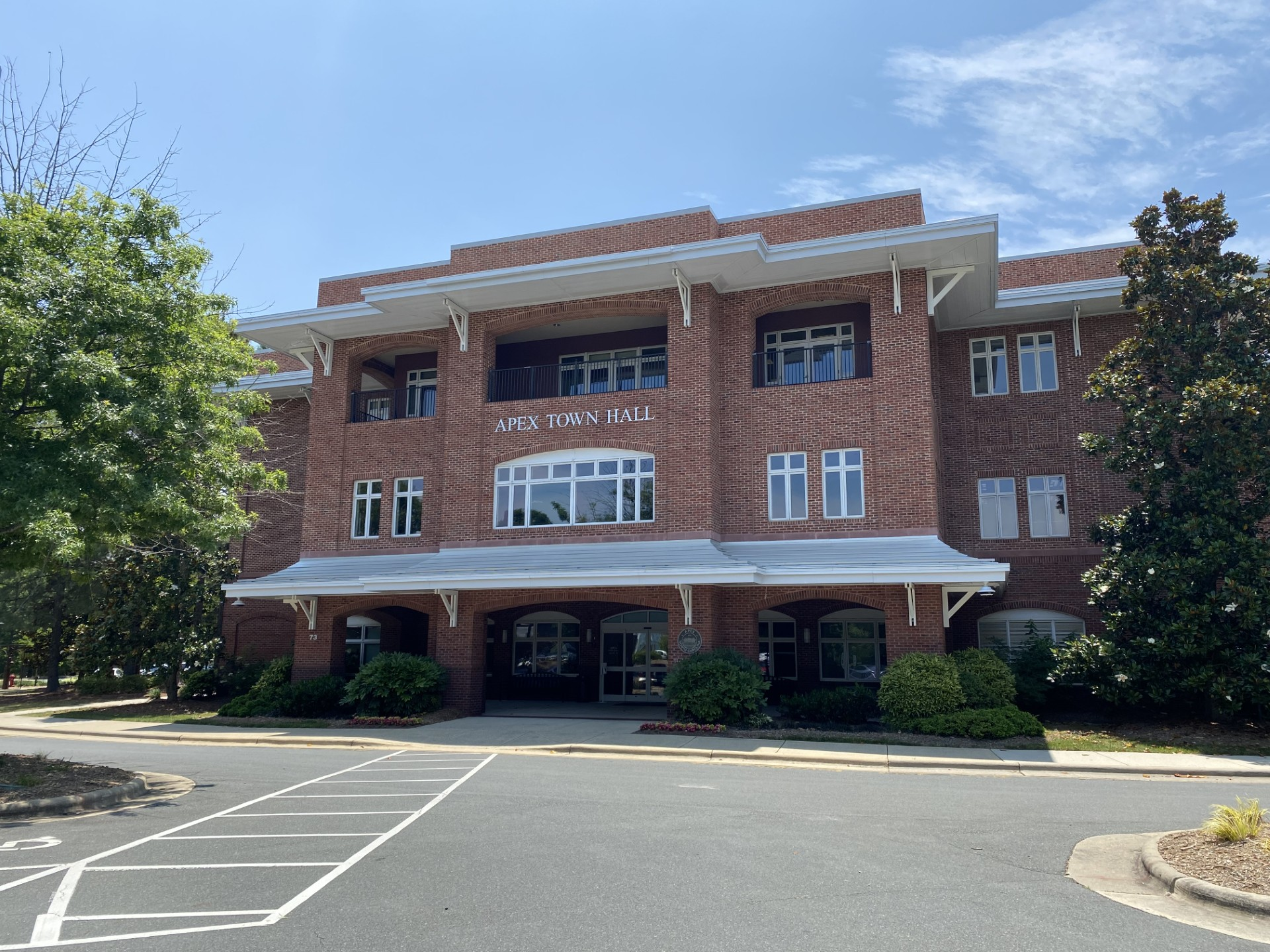
This post was written by first year student, Julia Warren.
My experience this first year was incredible to say the least! This journey so far has been extremely rewarding. The MPA Program at UNC-CH is truly exceptional, and I know I made the right decision by accepting my admission into the program. While attending graduate school is no easy feat, I was eager for a challenge academically. Getting my MPA is the best decision I have ever made because I can already tell it has helped me professionally for my future career.

My classmate Matt Begley had a similar experience when he stated, “When I first applied to the program, I only knew that I was looking to develop a career in public service. I did not expect to meet as excellent colleagues as I have and receive the chance to work and help as many different organizations as I have. I am extremely grateful for the opportunity to attend the UNC School of Government, and I am excited to see where this path takes me.” – Matt Begley, MPA Candidate.

All of my courses this year were truly captivating. The course work is designed to be applied to real-world scenarios. First year student Skye Allan stated, “The MPA Program has helped me take the practical knowledge I’ve gained working in local government and understand the framework and theories that make it all happen” . Stephen Wright elaborates further on how the program is helping to interpret his experiences in the public sector. “Coming from the Lead for North Carolina Fellowship, the MPA is helping me take what I learned working in the field and breaking down and reworking it in the classroom. This is preparing me for leadership position in the future.” – Stephen Wright, MPA Candidate.

One of my favorite courses was PUBA 710 Organizational Theory taught by Dr. Willow Jacobson. I learned so much from this course, and it introduced me to an excellent non-profit that I am eyeing for future work. This course requires a semester-long project in which you conduct interviews with an organization of your choice and write two essays diagnosing that organization based off of class concepts. Another course that I thoroughly enjoyed was PUBA 723 Human Resource Management, taught by Dr. Leisha DeHart-Davis. The material for this course was very engaging and peaked my interest with its collaboration requirement. Our piject which you and a group of your peers worked together on supported a client of Dr. DeHart-Davis’ Local Government Workplaces Initiative. My team worked with Guilford County focusing on Employee Engagement.
The professors are all experts and practitioners within their respective niches in public administration. The environment in the MPA Program at UNC is unlike any other, and the expertise of the professors is unmatched. As my classmate Alyssa Pacheco found, “The professors in the program are some of the most brilliant public service minds and hearts. I love that they push us to be better in not just what we learn, but what we do, how treat others, and support our community. That’s the crux of our field.”
Our cohort is nicknamed the “clapping cohort” as we are always cheering on each other, professors, and faculty. The atmosphere within the School of Government is the most supportive I have ever been part of. There are no rankings, and it is not a competitive environment like some other graduate schools. We all just want to see each other thrive and be the best public servants they can be.

This summer I will begin my Professional Work Experience in May at the Recycling Partnership. This experience will allow my to apply the skills I have learned in Analysis and Evaluation I and II. It will also be my first time working in a non-profit, which I am very excited about. I am incredibly grateful for being granted this opportunity which may have not been possible without joining the MPA Program at UNC.
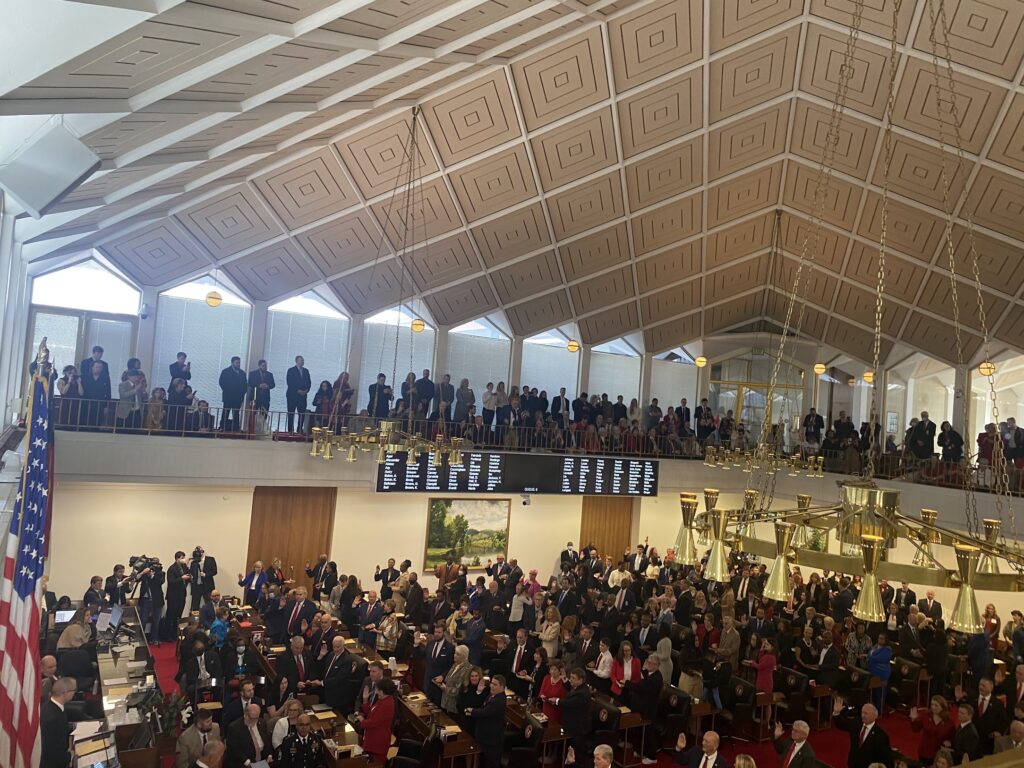
I am currently working on a couple of projects including getting out the newsletter, collecting success stories for future reference, and creating a summary of key issues in the state budget. So far, I have found my Professional Work Experience to be an incredibly rewarding and flexible internship with the state government. I feel that I am putting my academic experience in the MPA program to use in the PWE and withnessing first-hand how public administration theories are implemented outside of the classroom. Classes like the budgeting class have been extremely helpful in navigating funding and economic policies. I would say the biggest challenge in completing any PWE is to make sure that you have great time management skills, which is a must when working and completing school work at the same time. I personally use google calendar and categorize my calendar based on the topic (i.e., work, school, appointments). I also keep a running task list based on the priority of the task. For example, the newsletter is due at the end of each month so I try to do it ahead of time especially when I also have coursework due. The PWE has been so helpful in learning more about how state government works and exposing me to networking and giving me opportunity to practice balancing being a student while holding two part-time jobs. I recently finished my mid-experience check-in and I am looking forward to applying what I have learned in the PWE to my Applied Research Problem course!
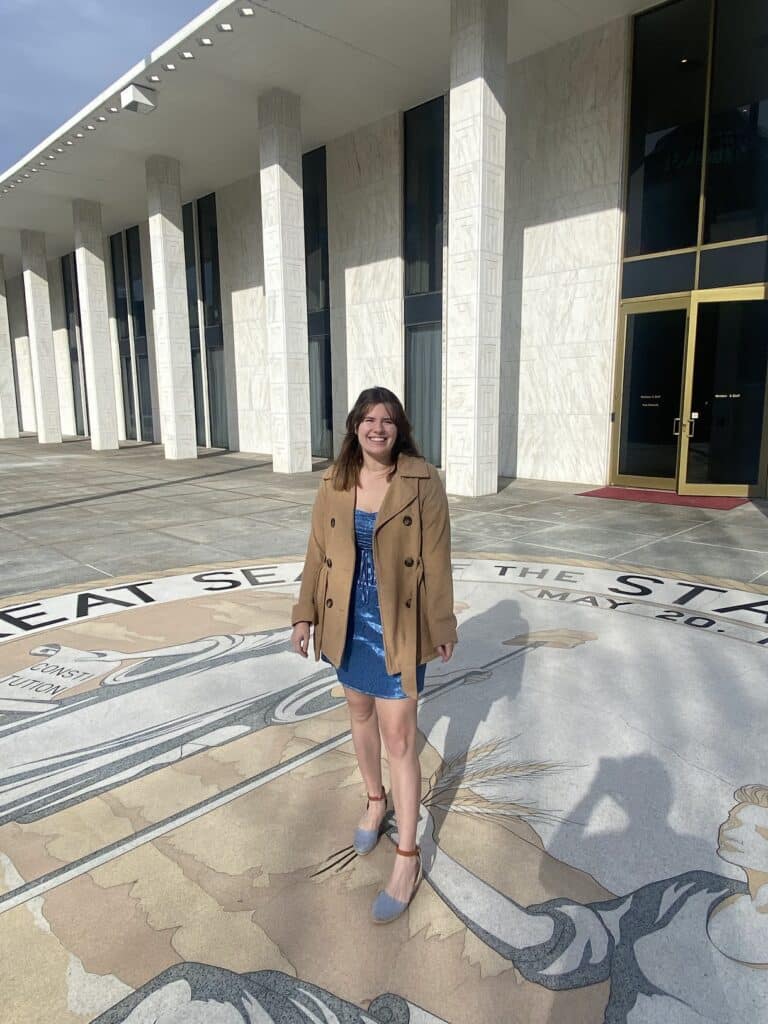
Andrew Stephen Wright is a current first-year student in the UNC MPA program. Born and raised in North Carolina, his tenure at UNC began as an undergraduate student, where he double majored in Peace, War, and Defense and History. After graduating in 2021, he joined the Lead for North Carolina fellowship program and worked in the Ashe County Government planning department for two years. He is interested in local government management.
Each year, the UNC MPA program sponsors students to participate in conferences—including the North Carolina City and County Management Association (NCCCMA) seminar—and other networking events that support their interests and enhance their learning.
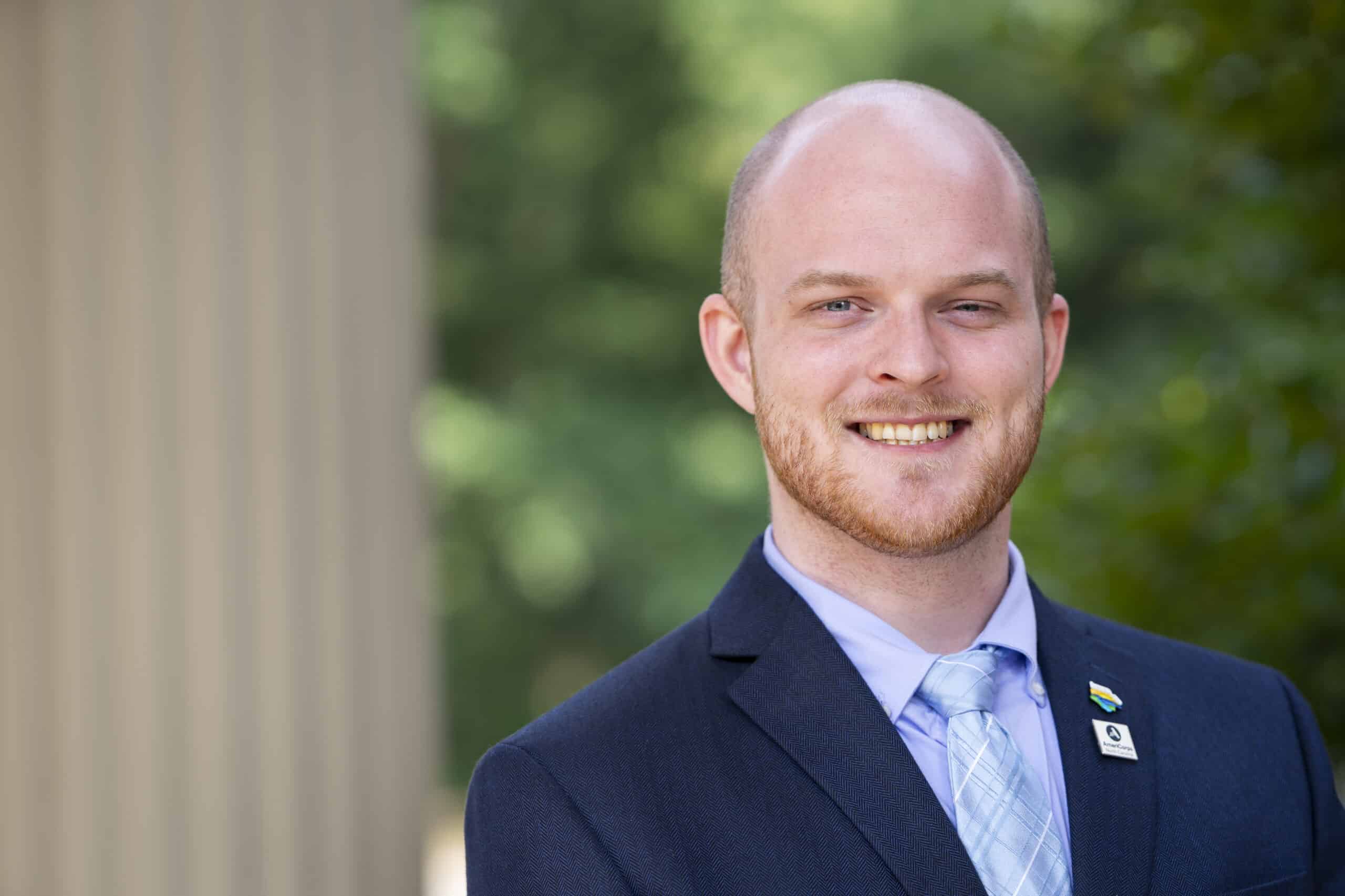
by Andrew Stephen Wright.
The NCCCMA annual winter seminar is always an opportunity to engage with and learn from our state’s vast array of public service professionals. I’ve attended two years in a row, first as a Lead for North Carolina fellow with Ashe County and now as an MPA student at the UNC School of Government, and I can definitely say it’s an almost mandatory event for an aspiring public servant in North Carolina. This year’s seminar offered fresh opportunities to learn about the issues facing our local governments in 2024, with sessions ranging from harnessing AI to provide more equitable and efficient services to strategies for winning competitive federal grant funds.
Two sessions, in particular, stood out to me for how they play into the changing face of local governments across our state. The School of Government’s own Leisha DeHart-Davis gave an in-depth look into the role of emotional labor in the everyday work of public servants, a concept we had just begun to study in her PUBA 723 course at the school. The ability to project calm and manage one’s emotions is, without a doubt, an asset to public service organizations, and this session ended up building off our class discussions on how to manage emotional labor without burning out.
I also had the opportunity to attend a session on organizational resilience, which centered around how local governments can and should adapt to accelerating change in the field. Panelists shared their experiences with organizational and community change, sometimes with simultaneous changes. The experience in Canton, NC, stood out to me most. The town was faced with retooling its long-term vision to account for the impact of COVID-19, widespread storm flooding, and the closure of a packaging plant vital to the local economy, all within two to three years. Bouncing back from these events alone would have been difficult enough, but all simultaneously seemed nearly impossible. It showed me that it takes a particular level of commitment and buy-in from the government and the community not to back down in the face of incredible adversity.
The public learning sessions were not the only high point of the seminar though. Our MPA students had several unique opportunities to engage with public servants from across North Carolina, thanks to the work of the School of Government and NCCCMA in tandem. The alumni breakfast was a chance for past and present students to meet, eat, and, for many of us, job hunt in the context of our shared MPA experience. Every MPA student is looking for a job, and many alumni were there with openings to match. Later that same day, students had the chance to sit down for discussions on how to succeed in local government, including skills and tips on building up competitive resumes and cover letters.

The NCCCMA seminar is quickly becoming one of my favorite annual events, as it allows me to network and develop knowledge alongside public servants from various backgrounds, work experiences, and locations. At the same time, everything feels rooted in doing the best for North Carolina and its residents, and we can walk away knowing we’re building a toolbox that we can take with us into public service, whether we’re students just starting down the path, or long-time career professionals keeping ahead of the game. Without a doubt, I look forward to the 2025 event and the fresh ideas and opportunities it will bring.
This post was written by current student Jennifer Taylor-Monteagudo.
As a City of Richmond Mayor’s Fellow, I have had the opportunity to learn the how many of the UNC MPA courses correlate in a government entity. My internship in the Treasurer’s Office, an elected official, has enhanced my connection to various stakeholders. The unique opportunity has allowed me to work with city residents on the phone, in person, and via social media platforms. The ability to work with elected officials, residents, and city public servants has made knowledge of the organizational structure and effective communication key skills to successfully working with stakeholders at multiple levels within the city.
During the internship I have been afforded the opportunity to work on a variety of projects and efforts by the Treasurer’s Office including the Office of Financial Empowerment and Financial Wellness Wednesday. I have also had exposure to internal processes and how various departments interact to provide select services to residents of Richmond. The Freedom of Information Act (FOIA) requests process was of particular interest as governments in general are not known for efficient use of time and these requests are time sensitive. Understanding how the departments work together to obtain requested documents and remain in compliance with the required timeframe for a response has been a valuable lesson on developing and maintaining positive work relationships.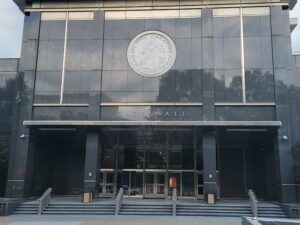
The primary focus of my internship is on assisting with the Office of Financial Empowerment through the Office of the City Treasurer. The Office of Financial Empowerment has a mission to “inspire, encourage, and pursue the high possibilities of potential in others through elimination of financial barriers by “Making Options and Resources Easily Accessible” for all. The office does this by incorporating financial coaching services, providing and promoting financial literacy throughout the city, and partnering with City Agencies to improve service to city residents facing poverty and COVID-19 related financial distress. This aspect of my internship has provided me with exposure on the intricacies of developing an idea to an action within the confines of the government. Aligning the needs of the community with the resources allocated to the department. I have been fortunate to see the partnering of multiple departments that have shared interests in the financial status of residents, combine their separate resources to make a larger impact to better the community.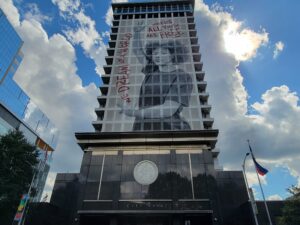
I was able to contribute towards the creation of financial tools that assist residents in learning to create and execute a budget. In addition I am able to create graphics that are aesthetically appealing to the public but also provide information and resources on how to become more financially empowered. These graphics are posted on social media regularly allowing an element of creativity while maintaining a consciousness of targeted audience. I was also able to use my teaching background to support the brainstorming on how to present and teach financial literacy to city residents. This opportunity allowed for my expertise to bring value and make the development thoughtful to the variety of adult learning styles within the city of Richmond.
So far in this internship experience as a City of Richmond Mayor’s Fellow, I have learned the importance of leadership and how it impacts outcomes for city employees and residents. As I progress through this fellowship, relationships has been a reoccurring theme. The building and development of strong relationships with all City Of Richmond stakeholders has been integral in the success of programs across multiple departments. Understanding the organizational structure and respecting that structure is important in acknowledging and building relationships and getting things accomplished. I am excited to continue to acquire knowledge and connections between the UNC MPA program and the reality of local public service.
Current UNC MPA student Elisabeth Butler writes about her summer work experience with Race for Equity. You can read her first blog post here.
————————————————————————————
While conducting my Professional Work Experience (PWE) at RACE for Equity, I was recently introduced to a tool developed by RACE for Equity called the Community Engagement Continuum (CEC). The CEC outlines a process for engaging community members in an equitable manner. The CEC focuses on engagement from a racially aware vantage point, and it incorporates aspects of Results-Based Accountability (RBA) and the Groundwater Approach into its methodology. My task in relation to the CEC is to take the lengthy 44-page document explaining the CEC and boil it down to two pages. The two pages will serve as a more easily understandable and accessible handout for clients or partners who are interested in learning about the CEC.
I find the CEC interesting because I feel that it is trying to shed light on a question a lot of organizations are currently grappling with. How do you engage community members in an equitable manner? For decades, experts and those with resources and power have dictated the course and flow of development, but now there are many who have decided including those who are impacted but such decisions have knowledge and perspectives that should be included in the decision-making process. This idea of giving community members a voice seems easy in theory, but it has proved to be challenging to put into practice. One of my supervisors even noted that most clients who are interested in the CEC are only in the initial stages of the process, few organizations actually are or have made it to the later stages. Even though community engagement is easier in theory than practice, I look forward to seeing how organizations overcome current challenges in creating sustainable and equitable community engagement processes.
In addition to discussing the CEC, I also wanted to bring up my experience of working for a completely remote company. Before I accepted the PWE position with RACE for Equity, I thought a completely remote job was ideal. A remote job would allow you to work from any location and is more flexible in work hours in comparison to a typical 9-to-5 job. This is not a critique of RACE for Equity, but, instead, my own realization that in the future I would prefer an in-person or hybrid job. I enjoy the flexibility offered by RACE for Equity in terms of work hours and location, but I feel a completely remote experience hinders some of the comradery and bonding that occurs in in-person jobs. Don’t get me wrong, I do enjoy working from the comforts of my home, but it would be nice to see my coworkers in-person now and then. It would be nice to know you at least have the opportunity to stop by your coworker’s office or cubicle to socialize or bug then about an email you had sent earlier in the week. As I search for a job in the future, I will keep this realization of mine in mind.
Overall, I have enjoyed my experience with RACE for Equity so far. RACE for Equity has been very mindful about giving me enough work to meet the MPA hour requirement, and I have been introduced to new concepts that I have found interesting. This PWE experience has zoomed by, but I look forward to finishing up my PWE over the next couple of weeks and taking what I have learned from this experience to future jobs.
This post was written by current student Ben Lasley.
——————————————————————————
Hi there! 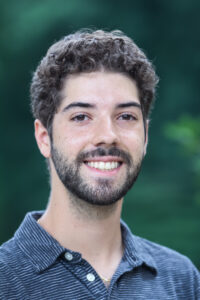
For those of you who may not know me, my name is Ben Lasley and I just finished my first year of the MPA Program. I am from Summerfield, N.C., and I graduated from UNC in 2019, majoring in Environmental Studies and Political Science. After graduation, I was a community organizer in Philadelphia and witnessed the strained relationship between neighborhoods, nonprofits, and governments. This struggle over food sovereignty and environmental justice prompted my return to UNC’s MPA program.
After a rigorous first year, I am excited to witness and implement classroom concepts, while also taking a breather from readings. And with that, it is now time for my professional work experience.

My job will be as a Policy Analysis and Communications Intern with the EPA (Environmental Protection Agency) Office of Air Quality and Planning Standards (OAQPS) in the Research Triangle Park. I found this opportunity on USA Jobs, and the MPA program advertised it as well! I’ve long envisioned working on environmental policy at the federal level, and this pathways internship opens the door to participating in the regulatory process. Here are a few pictures of the campus! 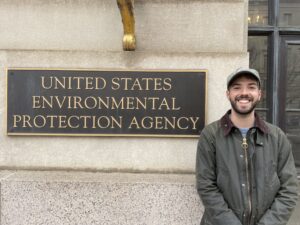
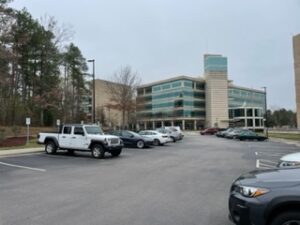
I will be responsible for:
1) Program evaluation of teacher environmental education workshops
2) Communication and community outreach plans for proposed regulatory actions
3) Internal OAQPS newsletters highlighting intern experiences
4)Observing and briefing congressional hearings
My first week has been off to a great start. Upon arriving, my badge was already incorrect, but a new order would be delivered in two weeks. A photo of my desk can be seen below. Thus far I have spent my time learning the ins and the outs of the OAQPS division, as well as swimming through federal onboarding videos. My first project will be assisting community outreach on a proposed ethylene oxide rule.

And the rest of the week I have the opportunity to network across the EPA and explore the RTP campus (where I can have unlimited free coffee). Thanks for joining me, and I look forward to updating you more next week!